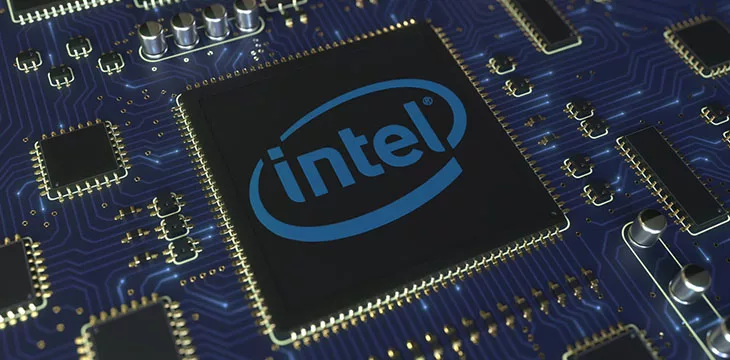|
Getting your Trinity Audio player ready...
|
Intel (NASDAQ: INTC) unveiled several new artificial intelligence (AI)-oriented computer chips during its “AI Everywhere” event in New York City—notably the Gaudi3, specifically designed for generative AI software.
Intel has been building its Gaudi chips since 2019 when it acquired chip developer Habana Labs, and it hopes that the chips will be adopted by companies building large farms of chips for AI applications. Intel shares increased by roughly 1.5% after it made its announcements at the event.
Gaudi3 is set to launch in 2024, and Intel hopes it will rival the chips created by its competitors Nvidia (NASDAQ: NVDA) and AMD (NASDAQ: AMD), which currently run large and power-intensive AI models.
Currently, the most popular AI models, such as OpenAI‘s ChatGPT, predominantly run on Nvidia GPUs; this reliance has significantly contributed to Nvidia’s market success, with its stock surging by nearly 230% year to date.
The age of AI PCs
“We’ve been seeing the excitement with generative AI, the star of the show for 2023,” said Pat Gelsinger, CEO of Intel. “[But] We think the AI PC will be the star of the show for the upcoming year.”
At the event, Intel also announced Intel’s Core Ultra chips, designed for Windows laptops and PCs. The Ultra chips feature a specialized AI component known as an NPU (Neural Processing Unit), enhancing their capability to run AI programs efficiently.
Although not as powerful as the Gaudi3 for running large-scale AI models, Core Ultra chips are adept at handling smaller tasks. For instance, Intel has showcased its ability to power features like Zoom’s (NASDAQ: ZM) background-blurring function. Intel predicts that AI PCs will comprise 80% of the PC market by 2028, changing how we work, learn, and create.
“Intel is on a mission to bring AI everywhere through exceptionally engineered platforms, secure solutions, and support for open ecosystems. Our AI portfolio gets even stronger with today’s launch of Intel Core Ultra ushering in the age of the AI PC and AI,” Gelsinger said.
The race to power AI’s future
Not only is the competition in the AI model space heating up, but we are now seeing increased competition amongst chip markers. These powerful semiconductors are the engines driving the advancement in AI, from vast data centers to everyday consumer devices.
Nvidia has been the dominant player in this space to date, but recently, we saw chip-maker AMD, and now Intel, vying for market share. As each company strives to outperform the others with more efficient, more powerful chips, the AI sector benefits from a surge in innovation.
These advancements translate into faster processing speeds, reduced energy consumption, and enhanced data handling capabilities, leading to more robust and scalable AI solutions. This will result in more accurate decision-making in critical areas such as healthcare, environmental monitoring, and financial services.
Enhanced chip performance also allows for more sophisticated AI models, enabling nuanced understanding and interactions in areas like natural language processing and predictive analytics. These developments are paving the way for AI systems that are smarter, more efficient, and more attuned to the complexities of human needs and the environment.
In order for artificial intelligence (AI) to work right within the law and thrive in the face of growing challenges, it needs to integrate an enterprise blockchain system that ensures data input quality and ownership—allowing it to keep data safe while also guaranteeing the immutability of data. Check out CoinGeek’s coverage on this emerging tech to learn more why Enterprise blockchain will be the backbone of AI.
Watch: AI truly is not generative, it’s synthetic

 07-14-2025
07-14-2025 





